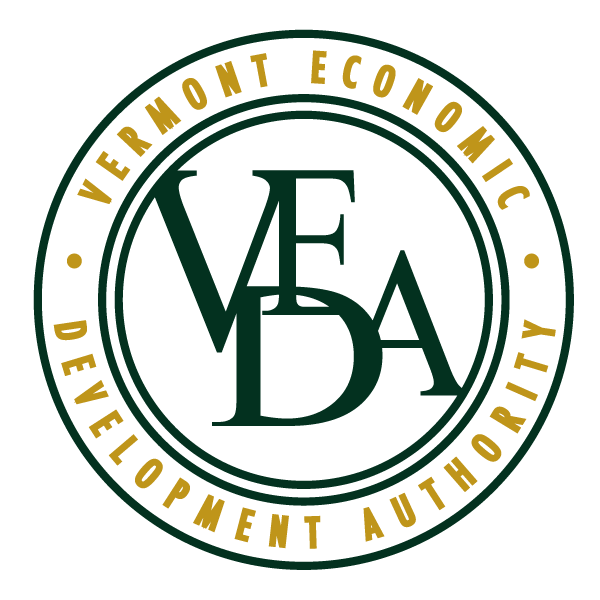802.828.5627Contact UsRates & Fees
802.828.5627Contact UsRates & Fees
The VEDA Short Term Forgivable Loan Program was made possible in part by a grant from the State of Vermont through the Agency of Commerce and Community Development, Department of Economic Development.
When Peter Miller was 28, he left his job in engineering to return to the family farm, taking it over with his brother. In 2008 the farm finished its transition to organic. The farm is home to about 350 cows; including 200 milkers, in Vernon.
Unlike many others in his position, Miller grows corn for the cows, in addition to alfalfa grass and the like. This is uncommon because of the difficulty of controlling weeds without herbicides or pesticides — to maintain the organic nature — opting instead to utilize machinery to disrupt the weeds, reminiscent of horses’ tasks back in the day.
“It’s not nearly as easy as it sounds,” Miller said.
Miller is part of the fourth generation of the family farm, which spread to Vernon after “urban sprawl” overtook nearby Brattleboro, he joked. The idyllic multigenerational farm culture is not without struggles.
Fast-forward to the year 2020, when the price of … everything… skyrocketed. Miller’s pay price actually went down, despite demand rising. This, coupled with $6-per-gallon for fuel, grain costs nearly doubling and a significant loss all around, there was a need for alternative resources. VEDA entered the picture at the right time for Miller.
“My brother and I were considering pulling the plug,” he said. Forgivable loan funding “gave us a stop-gap.”
The business, like so many others, didn’t have the sort of rainy-day fund it would have liked and VEDA funding helped the farm weather the COVID storm and continue on.
“I’ve got my parents, my in-laws, my brother’s in-laws, my daughter and her husband as well as my brother, and a number of other people whose lives depend on this farm staying viable and staying open. If this farm hadn’t stayed open there would be about eight full-time equivalents without a job,” Miller said. There wasn’t an option except to forge ahead.
VEDA’s funding process was encouraging, according to Miller, and quick — the streamlined nature of the program made a huge difference. In addition to alternative funding options, the Millers’ resourcefulness led them to a new arm of the business during the pandemic — bottling milk. Unsure of what needs would look like, with supply chain issues mounting and pay prices dropping, this diversification just made sense.
“We decided that, well, if the world goes to hell in a bucket, we’ll at least be able to feed our neighbors,” he said. Plus, it feels good to create a quality product that people are willing to pay for because they like it the best.
Miller has heard from many a parent whose toddlers refuse to drink milk — unless it is his farm’s milk, that is.
“It’s the innocence — they don’t have any agenda,” Miller said. “There’s no flattery, so when a kid endorses it, unwittingly, it’s like the sincerest form of endorsement for me.”
About six percent of the farm’s milk is diverted this way, and its branding — complete with a cute cow, tongue exposed — is seen across the region.
And with VEDA’s funding opportunities, the farm was able to stay alive, the cows were fed, the lights stayed on — all is well.
